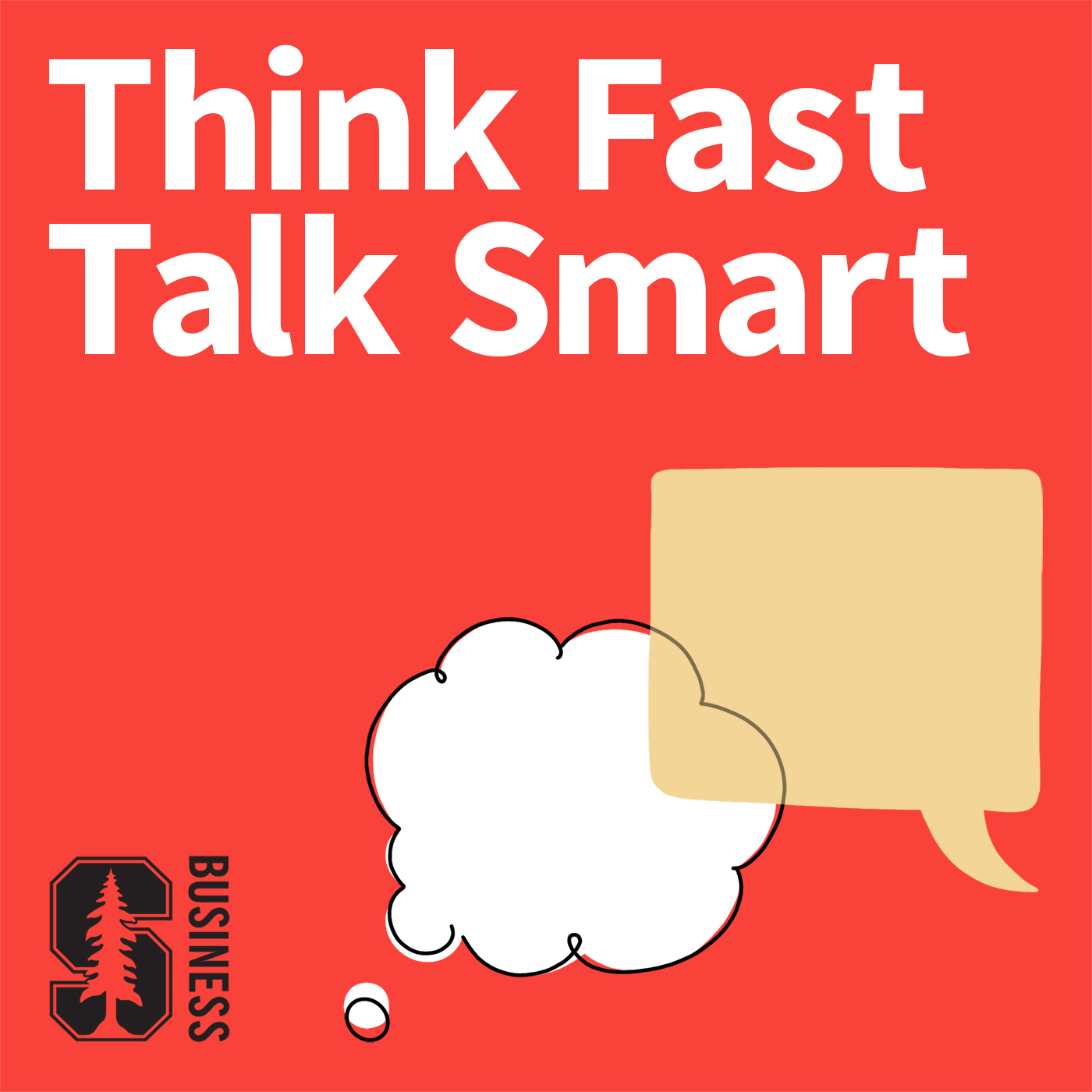
158. Hope for Cynics: Building Trusting Relationships through Communication

Think Fast, Talk Smart: Communication Techniques
Shownotes Transcript
“Acts of trust are the bedrock on which relationships are formed.”
There’s a lot in the world to make us cynical about other people and their motives and intentions. But by “trusting loudly,” Professor Jamil Zaki) believes we can renew our faith in one another.Zaki is a professor of psychology at Stanford, director of the Stanford Social Neuroscience lab, and author of several books, including his most recent, Hope for Cynics: The Surprising Science of Human Goodness). While many people feel suspicious of others and are reluctant to trust them, Zaki finds that relying on other people is a necessary part of forming relationships.
“Acts of trust are the bedrock on which relationships are formed,” Zaki says. “The only way that strangers become friends and friends become best friends, the only way that we can build partnerships is through a willingness to count on one another.”
In this episode of Think Fast, Talk Smart), Zaki joins host Matt Abrahams to discuss practical strategies for fostering trust and challenging our cynical assumptions, offering a hopeful perspective on human nature, backed by surprising scientific insights.
Episode Reference Links:
- Jamil Zaki: Website)
- Stanford Profile: Jamil Zaki)
- Jamil’s Lab: Stanford Social Neuroscience Lab)
- Jamil’s Book: Hope for Cynics)
- Ep.84 Quick Thinks: How Others Define Us Website) / YouTube)
- Ep. 129 Connect Deeply: How to Communicate So People Feel Seen and Heard Website) / YouTube)
Connect:
- **Email Questions & Feedback **>>> [email protected]
- Episode Transcripts >>> Think Fast Talk Smart Website)
- Newsletter Signup + English Language Learning >>> FasterSmarter.io)
- Think Fast Talk Smart >>> LinkedIn), Instagram), YouTube)
- Matt Abrahams >>> LinkedIn)
Chapters:
(00:00:00) IntroductionHost Matt Abrahams introduces guest Jamil Zaki, director of the Stanford Social Neuroscience Lab.
(00:01:03) Defining Trust and Its Importance
A definition of trust and its impact on relationships with others.
(00:01:54) Building Better Trust
Developing trust, with a focus on communication and "trusting loudly."
(00:03:24) Understanding Cynicism
The concept of cynicism, its impact on social interactions, and the idea of the cynicism trap.
**(00:05:47) The Cynicism Spectrum **Whether cynicism is binary or a spectrum, and what the opposite of cynicism looks like.
(00:08:07) Fostering Hopeful Skepticism
How to cultivate hopeful skepticism instead of falling into cynicism.
(00:10:20) Challenges of Overcoming Cynicism
Advice on expanding worldviews and managing confirmatory experiences.
(00:15:10) Self-Fulfilling Prophecies
The power of self-fulfilling prophecies and how they shape social interactions.
(00:17:31) The Final Three Questions
Jamil’s approach to communicating concepts eloquently, a communicator he admires and his ingredients for successful communication.
(00:24:36) Conclusion
(00:00) - Introduction
(01:03) - Defining Trust and Its Importance
(01:54) - Building Better Trust
(03:24) - Understanding Cynicism
(05:47) - The Cynicism Spectrum
(08:07) - Fostering Hopeful Skepticism
(10:20) - Challenges of Overcoming Cynicism
(15:10) - Self-Fulfilling Prophecies
(17:31) - The Final Three Questions
(24:36) - Conclusion
